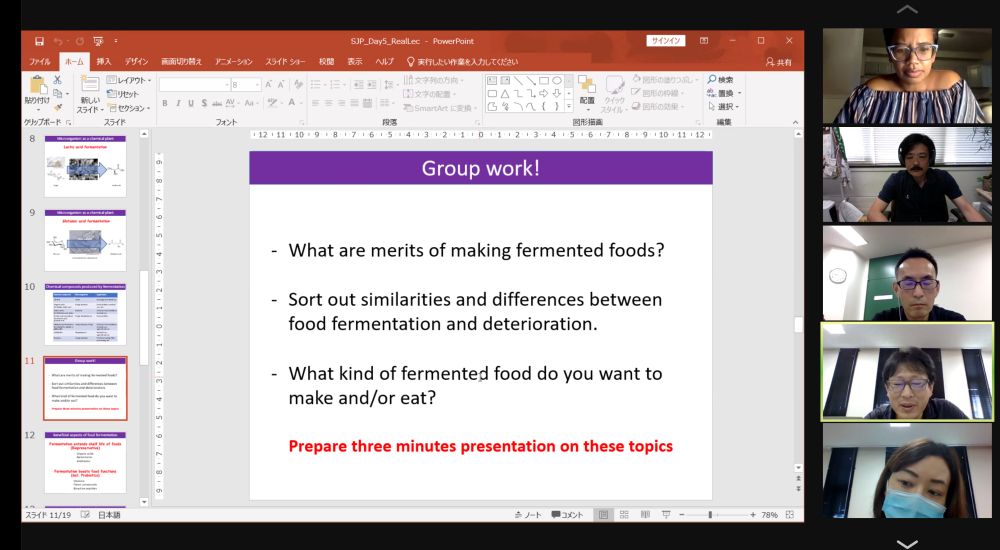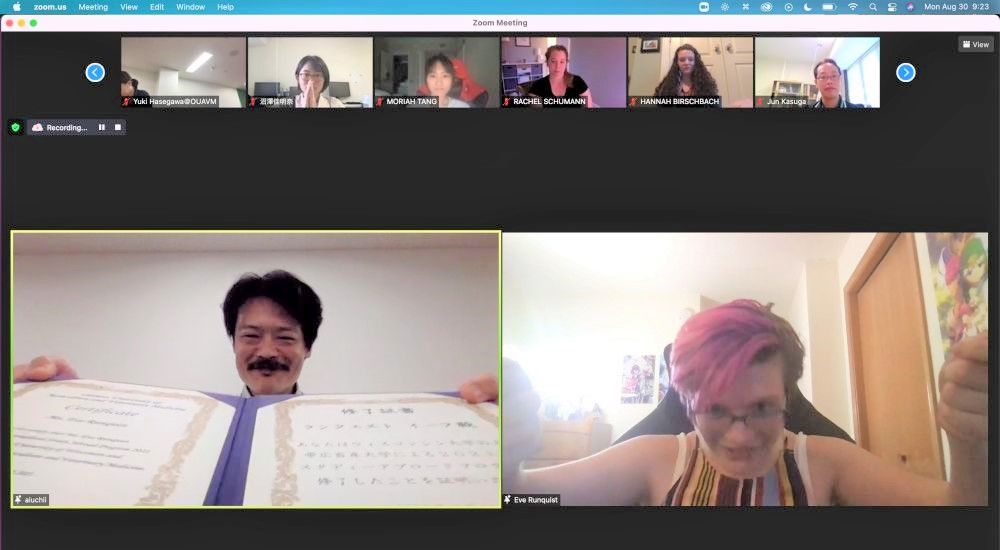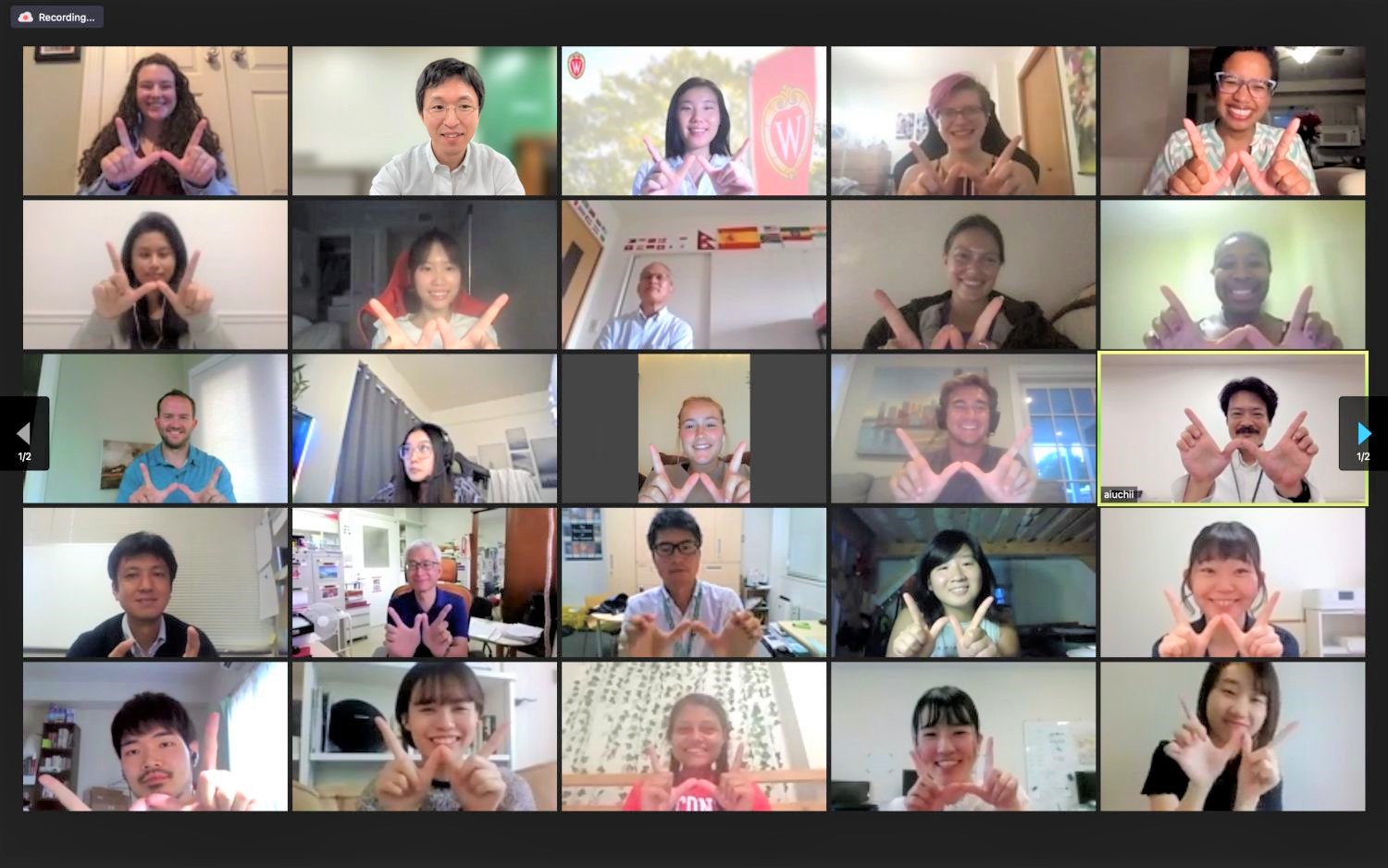The 10-day UW Food Systems and the Environment in Northern Japan—Summer 2021, an online summer program, was held for University of Wisconsin–Madison (hereinafter referred to as UW–M) students from August 20 to 30 with 14 students participating.
This program has been conducted in collaboration with faculty members of our university and UW–M since 2018 to provide students with opportunities to learn about the agricultural and livestock industry and food systems both in Hokkaido and Wisconsin while at the same time broadening their understanding of other cultures.
This program originally focused on enhancing learning through experiences, such as farm and food processing factory visits related to lecture themes, as well as observing the topography of Hokkaido by climbing mountains. However, due to the spread of COVID-19, the program was canceled last year. This year marked the first time it was held online.
Various issues had to be addressed in going online, including determining how to facilitate real experiences that would make it a valuable program for online learning, coming up with active learning methods for online lectures, and managing a 10-hour time difference between the participating universities. Faculty members from both universities communicated extensively to make it possible for the program to be held online.
Eventually, the program staff prepared five videos introducing Japan, nine virtual field-trip videos and 15 recorded lectures as on-demand pre-learning materials to enhance discussion in online lectures. Furthermore, various ideas were adopted to improve the program and to ensure students did not miss out on opportunities to study due to the time difference. Moreover, active tool-based learning was utilized and time for online interaction with students at Obihiro University of Agriculture and Veterinary Medicine (hereinafter referred to as OUAVM) was designated, thereby making this high-quality program a reality.
UW-M participants commented that they learned more through this year’s online program than they had through other on-site programs in the past, and voiced their desire to continue interacting with the participating OUAVM students and faculty members even after the highly acclaimed program wrapped up.



